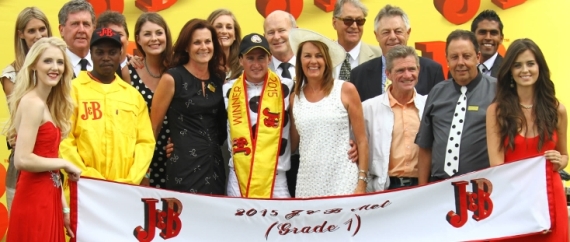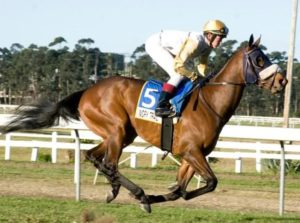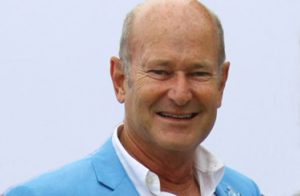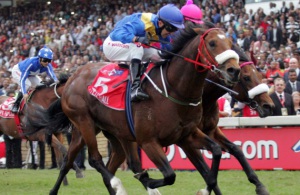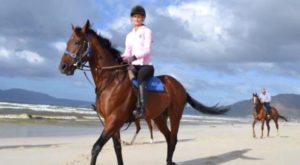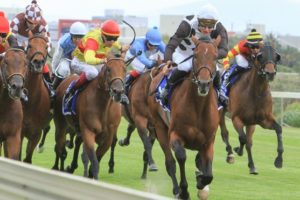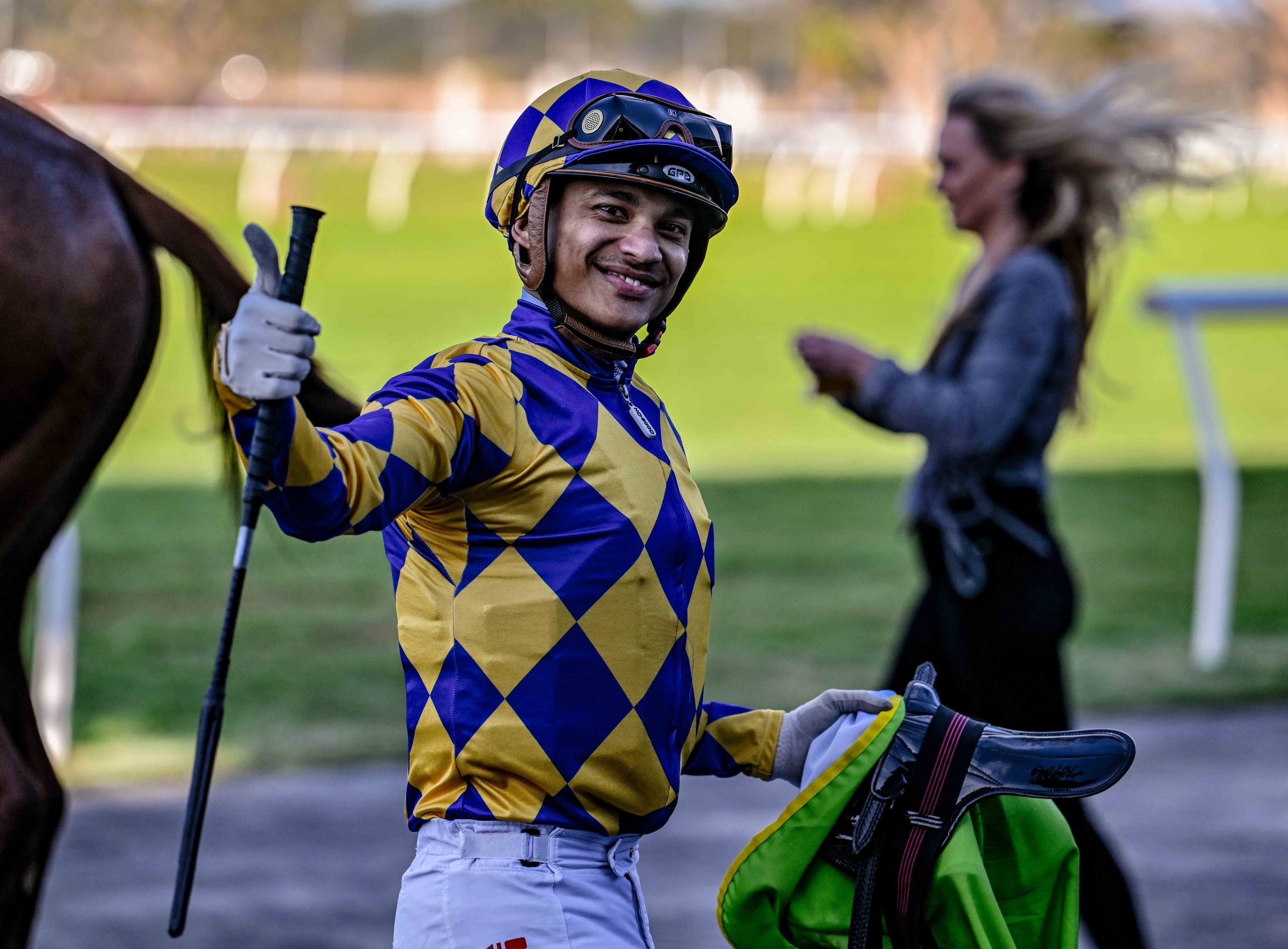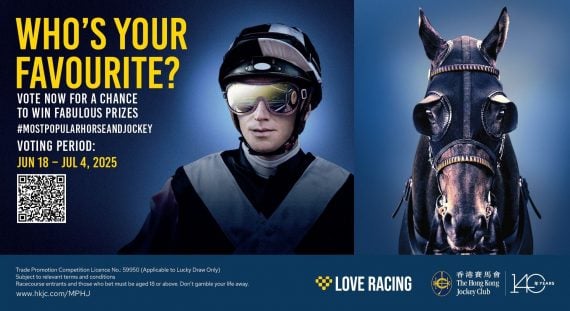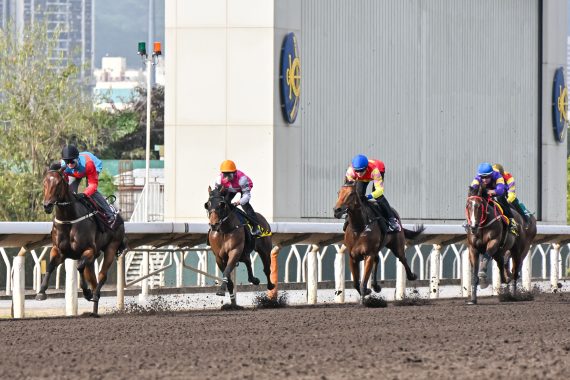In the past 12 months owner Jack Mitchell has won the July, the Queen’s Plate and the Met. Next Saturday Futura lines up in his familiar black and white silks as topweight in the Vodacom Durban July. Michael Clower visited him at his Constantia home recently.
Tall and grey-haired with dark-framed glasses Jack Mitchell -in shorts and striped shirt – is waiting at the front door. Clearly a cautious individual, he wants to know the writer’s background before he starts answering any questions. Apparently not all his dealings with journalists have been happy ones.
“I’m not a carpet-bagger and I don’t race to make money out of it. I race for fun,” he says, as he begins explaining his game plan and his racing philosophy as he takes his seat in the large drawing-room, his back to the veranda that looks out over a magnificent tree-filled vista with barely a house in sight.
He talks about how he buys his horses, their comparatively small number – usually around 20 but many of which he owns half at most – and how this means “a rifle-shot approach” to ensure he gets the right ones.
What he doesn’t do, he explains, is breed them. “I do have one mare,” he admits, almost sheepishly as if he has somehow gone against a fundamental principle. Indeed, in his view, that is just what he has done. “Breeding horses is not one of my missions in life,” he stresses.” I really don’t want to do it because you put yourself in a horrible situation.
“You end up with a whole bunch of them that are lame, ugly and never going to get anywhere. You see, if you sell them, you can only sell the good ones because nobody wants the bad ones. You certainly don’t want to race those and the ones you do want to race have to be sold because otherwise the whole concept is meaningless.”
He grins, secure in the knowledge that the logic is unanswerable. Yet William Jack Campbell Mitchell, now 69, was brought up in a racehorse-owning family which made its money in the Cape Winelands. His father was managing director of SFW (now Distell) in Stellenbosch and owned, in partnership with his wife’s brother, the remarkable William Penn, winner of the Guineas, Queen’s Plate and Met in the 1960s before finishing second in the July. He was a half-brother to Hawaii, went to stud and returned to racing as a ten-year-old.
“He was the one who really tweaked my interest and started me owning horses,” recalls Mitchell, by this time a Bishops-educated Cape Town stockbroker. He then joined the Old Mutual before making his name and considerable financial reputation as an investment manager.
Fishing in the right waters
Breaking off to pour a cup of tea, he reverts to racing and his constant search for top horses. Those that have carried his name and his hopes include Young Captain (his first Grade 1 winner), Water Kingdom, Security Council (who he bred – before he saw the light!), Roman Charger, 2009 Champions Cup winner Ivory Trail and more recently Jackson, Legislate and Futura.
He buys at the top yearling sales – he bought four at this year’s National – and points to the importance of “fishing in the right waters,” an appropriate analogy as he is a keen fisherman, both fly and sea, despite being without much of his left arm.
When asked about this, he pauses and his voice becomes quieter as if he doesn’t much like talking about it. The explanation comes staccato fashion with pauses between each bit: “Motor car accident ….a long time ago .. there was a fire involved… eventually amputated .” The volume picks up as he looks on the bright side: “I play tennis as well as fish, and it doesn’t bother me.”
Because of his upright stature and his well-cut jackets, most people don’t even notice. At social functions, when he has a glass or cup in hand, he is apt to greet people with “Sorry, I can’t shake hands. I’ve only got one!”
He reverts to the yearlings -“I try to buy horses that have the potential to win the classic-type big races – not the sprints – and I tend to pay quite a lot of money for them. You have to if they are well bred and good looking.”
He does the catalogue work himself, and inspects them all, but he relies heavily on John Freeman. “He is my professional advisor and confidant, and I pay him for it. But, although we operate in a professional capacity, we are also good friends.”
The majority of the horses go to Justin Snaith, after pre-training with Chris Snaith’s half-brother Jan Mantel or Julia Pilbeam, while Mike Robinson has one and Dennis Drier four. “I don’t race the two-year-olds that much. Mine tend to need time and I like to give them every chance.”
But he does not get attached to them to the extent that he doesn’t want to part – “I can’t, not when I have 20 or so. I move them on if I think they are not going to be more than the equivalent of the old B Division.”
Legislate was bought, not as a yearling, but after he won the Investec Cape Derby. “Dennis Evans wanted to realise some of his investment and, as I understand it, he was negotiating to sell the horse offshore. Jono Snaith phoned me and Gaynor Rupert to ask if we would take a share at that sale price. Gaynor is a lovely person and having horses with her is a real pleasure. We now have 75% between us and Dennis has the remaining 25%.”
That July objection
Winning the Vodacom Durban July was apparently the fulfilment of a lifelong dream. “Races like that are the ones you watched when you were young. They are outstanding and fantastic to win, although I wouldn’t want to win it like that a second time.”
He is referring to the objection and, although he and Wylie Hall’s owner Michael Leaf have since become friends and have a horse in partnership, he is still surprised that it was not the stipes who lodged the objection. “I remember saying to my wife (Helga) that I thought there would be an objection and that we would probably get it but in my day the stipes were much more active on this than they are now and I feel they should have objected.”
“In my day” refers to the 21 years he sat as a steward on the Jockey Club’s local executive when the stipes acted only in an advisory capacity, rather than controlling the whole boardroom as they do today.
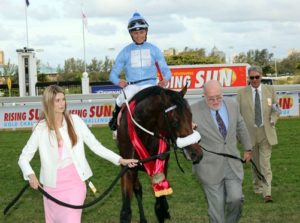
Nancy Mitchell leads Legislate in after the Gold Challenge – Dennis Evans is on the right as Jack watches in the background
He wasn’t present when Futura was purchased – for R500 000 at the 2012 National Yearling Sale- but he had inspected the colt beforehand and daughter Nancy represented him at the sale. A good enough rider to be put up on Legislate at exercise, she followed her father into investment management and her photograph is on one side of the fireplace. That of son Jerome (in meat-processing and commercial property) is on the other side.
Freeman, given the option to take a share in any of the Mitchell purchases, was sufficiently impressed with the horse to ask for 10%. Mitchell owned Jackson in partnership with Ian Longmore and, when he heard that Longmore was the underbidder for Futura, he invited Longmore to come in with him.
All went smoothly until after the L’Ormarins Queen’s Plate and the J & B Met when the partners began looking into the possibility of racing the horse overseas. The controversial split has been well documented and Snaith Racing even issued a press release spelling out the details. Briefly, Mitchell and Freeman received a letter from Longmore’s lawyer stating that they must either buy or sell at a specified price, failing which the horse would have to be sold at public auction within days.
“Look, I don’t want to rake all this up again,” Mitchell leans forward in his chair, a steely note in his voice. “It’s an unpleasant part of my life in racing, the most disappointing aspect of my racing career in fact, and I prefer not to go into it again.”
Mitchell and Freeman accepted the buy part of the ultimatum and Drakenstein (Gaynor Rupert’s stud and racing operation) bought Longmore’s 45%.
Under severe pressure
Stressing that he is speaking in general terms, and not specifically about Futura, Mitchell talks of his reservations about sending any entire horse to race overseas.
“People talk about the return but what about the risk? South African horses are under severe pressure when they go overseas. The travelling and quarantine take away a large chunk of their racing life and they have to overcome a series of different climates before they race. Everyone knows about the few that have done well but they forget about the number that have totally failed and have had their careers ruined. I also don’t think that it makes a horse any better as a stallion.”
Mitchell also has concerns about the increasing incidence of poor pace in many of the country’s top races.
He mentions last year’s July (“Look at the time. It was chronic”), this year’s Queen’s Plate and the Pinnacle that Futura won in May. “We have long had the Cape crawl but now we seem to have the Durban dawdle as well,” his voice assumes the same steely quality as it did when he was talking about the Futura split. “If there is a good horse in a race the other jockeys will often try to beat it with a slow pace.
“I’m not blaming them but I do think the stipes should get on top of this. Apart from anything else, this tactic causes trouble and concertinaing the field can be dangerous.”
Most owners like a bet, particularly when they think their horse’s chance is better than the odds. Not this one. “I might have R20 on something if I’m bored but never on one of mine. I can’t really see the point and, in case, what difference is it going to make?”
And does he get nervous before a race? “Not any more. When you have been doing it long enough you become observant about what is going on rather than being so nervous that you can hardly watch. But, if it’s a big race, then yes I am on edge.” He smiles. “And really, that’s half the fun of it.”
Originally published in the July issue of Parade Magazine


